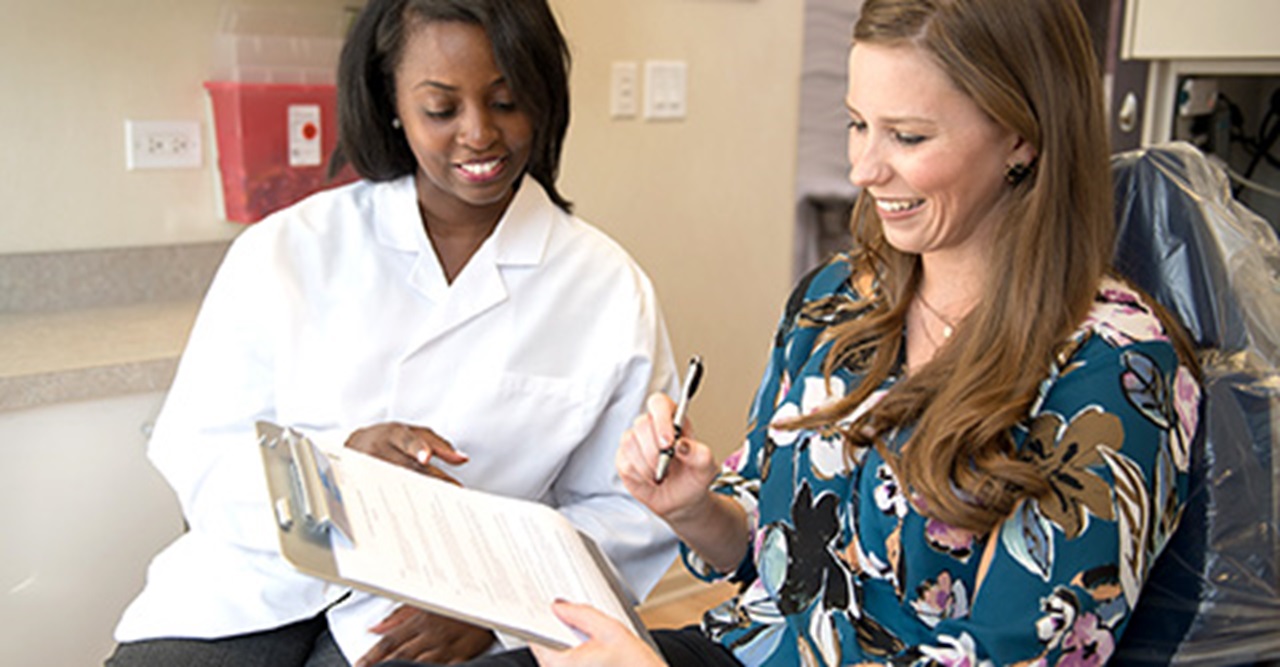Note: if you are a patient seeking care after the sudden closure of a direct-to-consumer aligner company, an ADA dentist or orthodontist can help you continue your treatment goals.
Visit ADA Find-a-Dentist to see local ADA dentists or orthodontists in your community.
Do-it-yourself (DIY) trends that claim a few simple steps will lead to a dramatic impact may work well for home improvement dreams, but what about when it comes to your dental health?
Popular on social media, DIY dental trends often promote the use of everyday household items to whiten, straighten, and even repair teeth. But these “dental hacks” are rarely backed by scientific evidence and can range from ineffective to harmful.
The benefits of an office visit
When dental work isn’t performed by a dentist or an orthodontist (a dentist who specializes in the bite and alignment of your teeth), how teeth look might be prioritized over dental health.
“It’s vital to seek dental recommendations and treatment directly from a dentist who can assess your oral health as a whole, as well as treat specific needs,” said ADA dentist Dr. Tricia Quartey. “A dentist is committed to your overall health and wellbeing – not just how your teeth look.”
Dental exams include diagnostic X-rays to determine the best course of treatment, which cannot be done at home, added Dr. Quartey.
During a dental exam, a dentist can catch issues beforehand and ensure treatment doesn’t cause more problems than it cures, said ADA dentist Dr. Ruchi Sahota.
“A dentist’s office is a safe place where a doctor is ensuring you’re not only getting safe care but also care that will actually treat the root of your problem,” said Dr. Sahota. “We want to make sure that if you utilize aligners to straighten teeth, that the teeth you’re straightening are healthy and sound.”
Before you take dental health into your own hands based on the promises and ease of any DIY treatments, it’s critical to talk to the expert – your ADA dentist or orthodontist.
The risks of DIY dentistry
“Some DIY dental health fads, like oil pulling, are just not effective,” said ADA dentist Dr. Matthew Messina.
Others, like DIY whitening with charcoal, can cause more harm than good, Dr. Messina warned. There is no evidence that shows dental products with charcoal are safe or effective for your teeth, according to the Journal of the American Dental Association.
For dental treatments like teeth straightening, products such as at-home aligners (also called direct-to-consumer (DTC) products) pose risks. Moving your teeth without knowing all aspects of your dental condition could result in:
- bone loss
- lost teeth
- receding gums
- bite problems
- jaw pain
- and other damaging and permanent issues.
Plus, DIY dentistry may cost you more than routine dental care if the methods:
- cause damage to the mouth
- ignore or worsen underlying dental problems
- or bring other unwanted results.
Getting the right treatment for your smile
If you’re considering any DIY or DTC dental treatments, first speak with your ADA dentist or orthodontist about the potential risks and benefits. If you have used a DIY aligner product and now would like to work with an ADA dentist or orthodontist, please visit ADA Find-a-Dentist to locate a provider in your community.
Prepare for your visit by researching the DIY treatment you’re considering. If you seek to use a whitening toothpaste or at-home whitening kit, ask your dentist about products with the ADA Seal of Acceptance because they have been independently evaluated by dental experts and shown to be both safe and effective.
“Talk to your dentist. We’re always here for you and open to discussing new trends that you may have seen in the news or on social media,” Dr. Sahota said. “Let us know what you are thinking so we can think it through with you!”
